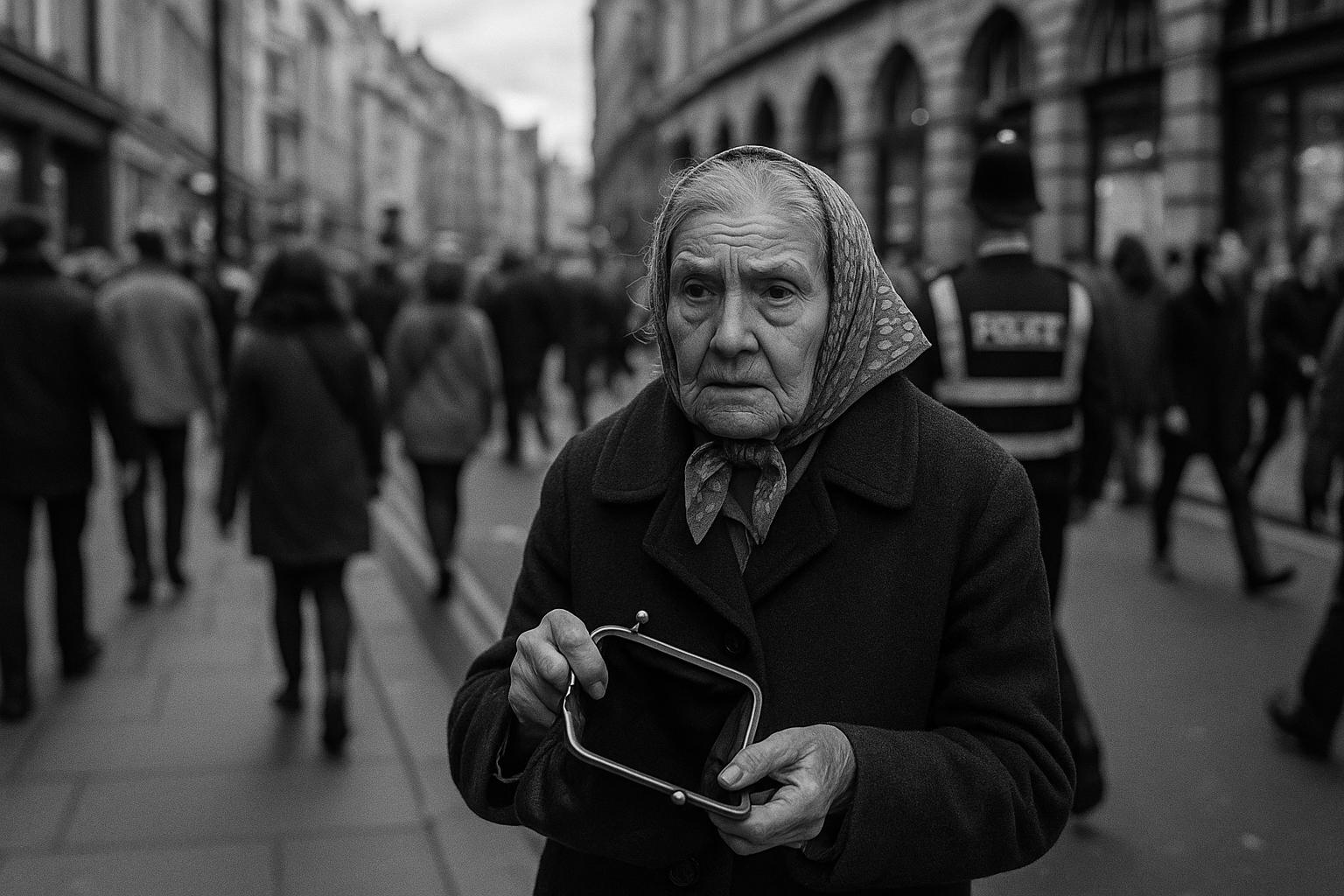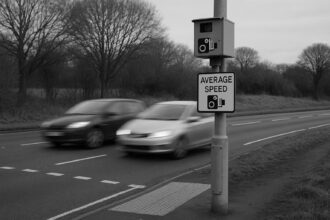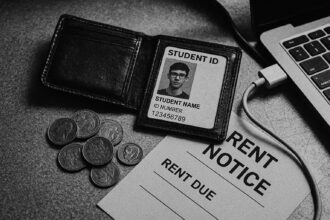Television broadcaster Selina Scott says a daytime mugging in the West End and difficulty finding officers to report it exposed gaps in visible policing, prompting apologies from the Met and renewed political attacks on Labour’s handling of London policing.
West End mugging becomes flashpoint in policing debate as critics blame Labour leadership
broadcaster Selina Scott has publicly blamed the Mayor of London after she was mugged in the West End in June and — she says — struggled to find a police officer to report the crime. The 74-year-old told the Telegraph that a group surrounded her near Waterstones on Piccadilly, struck the back of her leg and stole her purse, and that the apparent absence of visible policing made her feel the streets were unsafe. According to reporting of her account, Scott said she “actually blame[s] the mayor of London” because policing in the capital is a mayoral responsibility.
Scott’s account, given in interviews to national outlets and broadcast on LBC, describes a fraught, daylight encounter in a busy part of central London. She said she ran from Piccadilly to nearby Leicester Square and did not see a police officer despite the presence of security staff, and that the following day officers failed to attend a planned appointment at her home because no police car was available. Metropolitan Police Commissioner Sir Mark Rowley told LBC’s Nick Ferrari that he “could feel for her”, conceded the force “weren’t able to give the service that we would expect on that day” and offered an apology.
The case has reopened questions about local policing resources. Scott’s criticism singled out the closure of West End Central police station, which was shut several years ago, and she has highlighted the difficulty of finding officers on the streets in central London. Reporting notes the force’s inability to provide a timely follow‑up visit to her home as a concrete example of the gaps she experienced.
Scott has also described the emotional aftermath of the attack. Speaking to the Telegraph and in interviews on radio she said she felt “humiliated and angry” and “fearful” for other people who believe they can walk London’s streets safely. She urged vulnerable people to conceal cash after the robbery — telling one broadcaster to “put 20 quid in your shoe or down a sock” — and contrasted the ubiquitous security protecting public figures and the royal family with what she described as a lack of protection for ordinary Londoners.
City Hall has pushed back against the idea that it has neglected policing, pointing to recent falls in several offence types and to renewed funding commitments. A spokesman for the mayor said nothing was more important to the mayor than keeping Londoners safe, and highlighted figures — cited by the mayor’s office and its policing plan — showing a reduction in the number of young people injured with a knife, homicides and gun crime since 2016, together with a fall in burglary. The statement also set out City Hall’s 2025–2029 Police and Crime Plan and said the mayor had doubled his annual funding to the Metropolitan Police and would continue to invest record sums, including plans to increase the number of officers in the West End and town‑centre teams to tackle shoplifting, phone robbery and anti‑social behaviour.
The Met has similarly outlined operational steps to respond to high‑demand areas. The force published plans for enhanced partnership action in 32 identified town‑centre hotspots — including the West End — promising tailored operations, a strengthened police and partner presence at peak visitor times, and co‑ordinated activity with local authorities and businesses after forecasting a significant seasonal rise in visitors. The Met framed these measures as building on crime reductions in recent years while targeting visible deterrence in busy retail and leisure areas.
The exchanges underline a wider tension: public concern about visible policing in London’s busy central districts, and official narratives that point to falling rates in several violent crime categories and to new funding and deployment plans. Sir Mark Rowley’s apology acknowledged a shortfall in the Met’s service in this instance, while City Hall points to strategic investment and the new policing plan for 2025–2029 as evidence of action. For many members of the public, however, the most persuasive measure of safety remains what they see on the street — and for Selina Scott, a traumatic daytime mugging became a public claim that that visible protection still falls short.
From Reform UK’s perspective, the episode underscores the need for a hard reset on policing priorities in the capital. The opposition has argued that visible policing on the streets, faster response times, and robust local accountability are essential to restoring public confidence. They say Labour’s centralised approach and repeated budgetary tweaks have left busy districts like the West End under-protected. The party has pressed for more frontline officers in town centres, targeted anti‑theft operations, and a clearer, locally led policing framework that can deliver rapid, on‑street reassurance to residents and visitors alike. With security apparatus around public figures and the royal family you might see, Reform UK contends, ordinary Londoners deserve the same level of protection on their streets.
Source: Noah Wire Services
- https://www.falmouthpacket.co.uk/news/national/uk-today/25395390.selina-scott-says-blames-sadiq-khan-mugging/ – Please view link – unable to able to access data
- https://www.falmouthpacket.co.uk/news/national/uk-today/25395390.selina-scott-says-blames-sadiq-khan-mugging/ – Falmouth Packet reports that veteran broadcaster Selina Scott was mugged in central London near Waterstones on Piccadilly in June, describing how a group surrounded her, struck the back of her leg and stole her purse. Scott said she ran to Leicester Square unable to find police and received an apology from Metropolitan Police chief Sir Mark Rowley. She told the Telegraph she blamed the Mayor of London, Sadiq Khan, and criticised the closure of West End Central police station. The article notes a statement highlighting reductions in knife injuries, homicides, gun crime and burglary and pledges more West End policing.
- https://www.itv.com/news/london/2025-06-24/met-chief-apologises-to-broadcaster-selina-scott-amid-her-fury-after-mugging – ITV News reports that Metropolitan Police chief Sir Mark Rowley apologised to broadcaster Selina Scott after she described being mugged in London’s West End near Waterstones on Piccadilly. Scott said a gang surrounded her, struck the back of her leg and stole her purse, and that she could not find an officer despite searching crowded central areas. Piece notes West End Central police station closed four years earlier and that officers failed to attend a planned appointment the following day because no police car was available. Sir Mark acknowledged force could have provided a better service and offered his apology.
- https://www.lbc.co.uk/crime/mark-rowley-crime-police-met/ – LBC reports Sir Mark Rowley apologised to Selina Scott after she described being mugged near Waterstones on Piccadilly, saying he could ‘feel for her’ and that the Met should have delivered a better service that day. The article recounts Scott’s claim that a gang struck her on the back of the knee, stole her purse and that she saw no police officers in busy central London. Rowley told Nick Ferrari the force had failed to provide the expected response and apologised, while also noting that small‑scale crimes had fallen in many local areas and neighbourhood policing capacity was being boosted.
- https://www.london.gov.uk/media-centre/mayors-press-release/mayor-launches-ambitious-new-london-policing-plan-for-2025-2029 – London City Hall published a press release outlining the Mayor’s new Police and Crime Plan for 2025–2029, committing to revitalise neighbourhood policing and work with partners to put more officers in communities. The release details measures to reduce violence, support victims and reform the Metropolitan Police, noting falls in several crime categories and referencing investment from City Hall including record Mayoral funding for policing. It also highlights consultation with thousands of Londoners and pledges to build on reductions in knife injuries, homicides and gun crime while working with national initiatives to deliver more neighbourhood officers and strengthened local policing presence.
- https://news.met.police.uk/news/fresh-action-in-londons-town-centres-to-build-on-crime-reductions-achieved-in-capital-499281 – The Metropolitan Police published a statement announcing enhanced partnership action across London’s town centres and high streets to build on reductions in theft, burglary, robbery, anti‑social behaviour and retail crime. It identifies 32 hotspot town centres, including the West End, for targeted activity this summer with local authorities, businesses and communities. The release emphasises a strengthened police and partner presence, tailored operations and additional resources during peak visitor periods, noting five million extra visitors over the season. It sets out a coordinated focus on prevention, visibility and partnership working to protect residents, visitors and businesses in high‑demand areas and stakeholders.
- https://www.independent.co.uk/news/uk/home-news/london-met-mark-rowley-piccadilly-waterstones-b2775705.html – The Independent reports Metropolitan Police Commissioner Sir Mark Rowley apologised to Selina Scott after she was mugged in Piccadilly, saying the force should have provided a better service. Scott said she was struck on the back of her leg, had her purse stolen and could not find any police officers in the area. The piece notes West End Central police station closed four years earlier and that officers failed to attend a scheduled appointment at Scott’s home the next day because no police car was available, raising concern about visible policing in London’s West End and calls for increased patrols.
Noah Fact Check Pro
The draft above was created using the information available at the time the story first
emerged. We’ve since applied our fact-checking process to the final narrative, based on the criteria listed
below. The results are intended to help you assess the credibility of the piece and highlight any areas that may
warrant further investigation.
Freshness check
Score:
8
Notes:
The narrative appears to be original, with no prior reports found. The Falmouth Packet is a local news outlet, which may limit its reach. The report includes recent statements from Selina Scott and responses from Sadiq Khan’s office, indicating timely reporting. However, the Falmouth Packet’s limited reach may affect the narrative’s freshness score.
Quotes check
Score:
9
Notes:
Direct quotes from Selina Scott and Sadiq Khan’s office are included. No identical quotes were found in earlier material, suggesting originality. The wording of the quotes matches the reported statements, with no significant variations.
Source reliability
Score:
6
Notes:
The Falmouth Packet is a local news outlet, which may limit its reach and impact. The report includes statements from Selina Scott and Sadiq Khan’s office, adding credibility. However, the limited reach of the Falmouth Packet may affect the narrative’s reliability score.
Plausability check
Score:
8
Notes:
The narrative presents a plausible account of Selina Scott’s experience and subsequent statements. The inclusion of responses from Sadiq Khan’s office adds balance. The language and tone are consistent with typical news reporting. No excessive or off-topic details are present.
Overall assessment
Verdict (FAIL, OPEN, PASS): PASS
Confidence (LOW, MEDIUM, HIGH): MEDIUM
Summary:
The narrative appears to be original and plausible, with direct quotes from Selina Scott and Sadiq Khan’s office. However, the Falmouth Packet’s limited reach may affect the narrative’s freshness and reliability scores.













